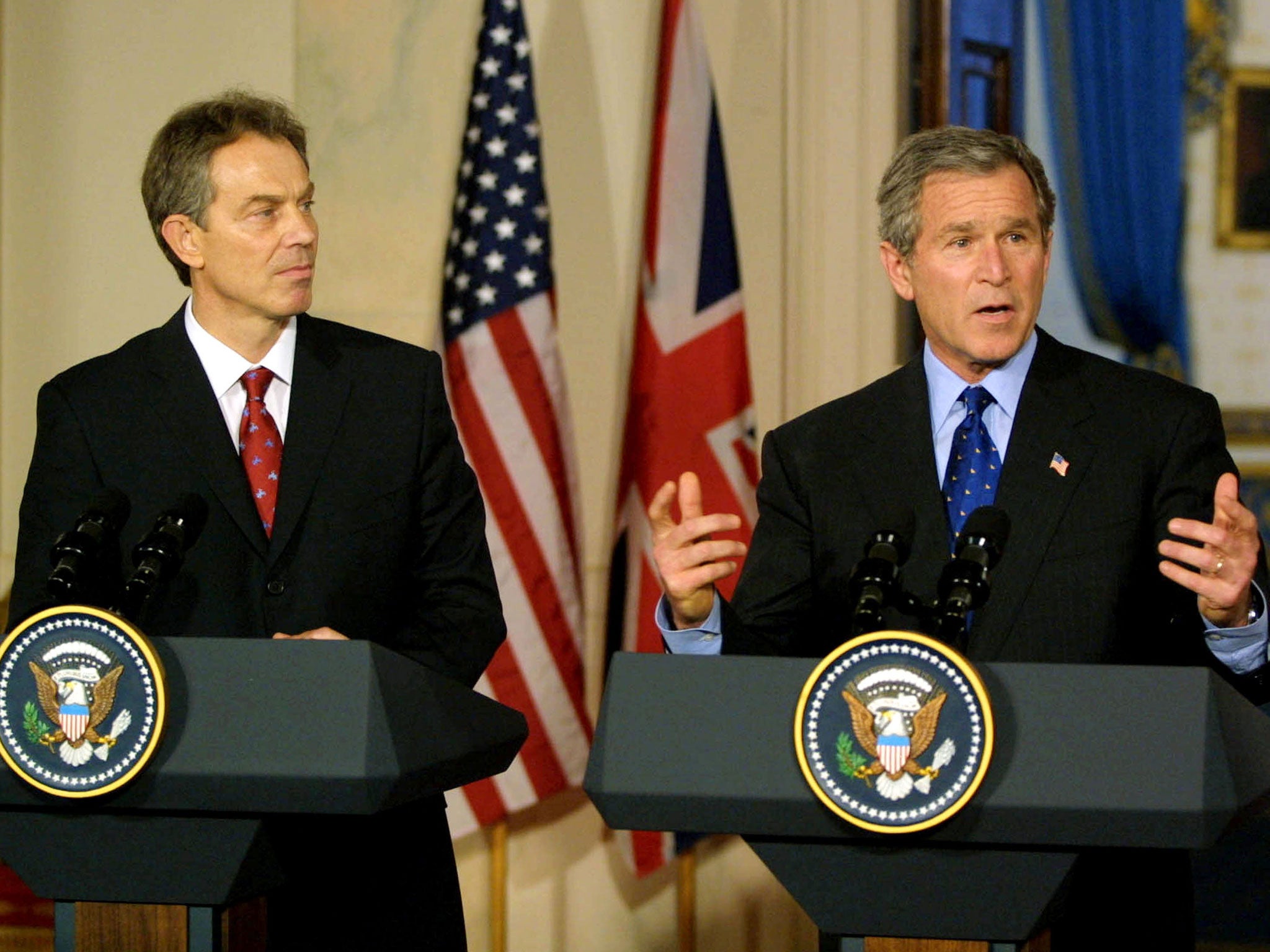West 'ignored evidence from senior Iraqis' that WMDs did not exist

Two senior Iraqi politicians told Western intelligence that Saddam Hussein had no weapons of mass destruction on the eve of the 2003 invasion – but their warnings were ignored and then not reported to the subsequent Butler inquiry, according to a major new investigation.
Vital intelligence used to justify the invasion of Iraq 10 years ago was based on "fabrication" and "wishful thinking", the BBC Panorama documentary claims. While information from highly placed Iraqis was dismissed as unimportant if it indicated that Hussein did not have WMD, tip offs from low-ranking Iraqis were eagerly lapped up if they reinforced what George W Bush and Tony Blair wanted to hear, it is claimed.
Lord Butler, who conducted the 2004 inquiry into the intelligence used to justify the war, told the programme-makers that he later discovered a previously overlooked report which revealed that an MI6 officer had a meeting in Jordan with one of Iraq's most senior intelligence officers, Tahir Habbush al-Tikriti. Habbush told MI6 that there were no WMD left in Iraq.
"We discovered that it was part of the paperwork we got – after the event," Lord Butler told Panorama's Peter Taylor. "This was something which I think our review did miss. But when we asked about it, we were told that it wasn't a very significant fact, because SIS (Secret Intelligence Service) discounted it as something designed by Saddam to mislead."
Several months before the war, the CIA's Paris station made contact through an intermediary with Iraq's Foreign Minister, Naji Sabri. Bill Murray, head of the CIA in Paris, reported to CIA headquarters that Iraq held "virtually nothing" in the way of WMD. That information was also passed to British intelligence.
"They were not happy," Murray told Panorama. "They just didn't believe it. There was a consistent effort to find intelligence that supported pre-conceived positions."
Lord Butler's inquiry was not told that the CIA had been in indirect contact with the Foreign Minister. "If SIS was aware of it, we should have been informed," Lord Butler said.
Yet the CIA and MI6 were prepared to believe sources like the informant Curveball, whose real name was Rafed al Janabi, a chemical engineer who fled from Iraq to Germany in 1999, and claimed that the seed factory in which he had worked was producing chemical and biological agents for mobile laboratories. By the start of 2001, German intelligence officers had realised that at least part of his story was made up and stopped relying on him. MI6 also assessed that he was a "fabricator".
But his claims were repeated as fact when the then US Secretary of State, Colin Powell, addressed the United Nations on the eve of war. Interviewed by Panorama, Rafed al Janabi admitted that he had made the story up.
The programme also traced the origin of Mr Blair's notorious claim that Iraq had "chemical and biological weapons, which could be activated within 45 minutes". The warning was originally conveyed in the mid-1990s to Iraqi exiles in Jordan, who were planning a coup, but were warned that if it came to a firefight between supporters and opponents of Hussein, the government was ready to attack any defecting unit with chemical weapons within 45 minutes. This report reached MI6, third hand.
The head of MI6, Sir Richard Dearlove, knew that the 45-minute warning applied only to weapons that could be used on a battlefield, but that caveat was not included in the MI6 dossier, and he reportedly did not tell Mr Blair. Lord Butler told Panorama: "It was interpreted as referring to missiles you could fire at Cyprus, and that did make it sensational. That misunderstanding was due to a sloppy bit of use of intelligence."
'The Spies Who Fooled The World: A BBC Panorama Special', is broadcast tonight on BBC One at 10.35pm.
Join our commenting forum
Join thought-provoking conversations, follow other Independent readers and see their replies
Comments
Bookmark popover
Removed from bookmarks